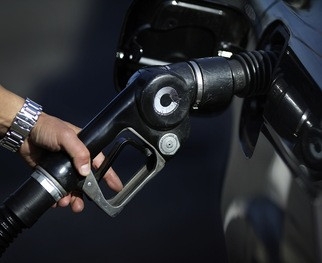
JUDY WOODRUFF:And we turn to the EPA's new regulations requiring cleaner gasoline.
The Obama administration announced the proposed changes today. They would require two-thirds less sulfur in gasoline and a reduction in other emissions beginning in 2017. They also would set tighter pollution limits for new vehicles themselves at the same time.
The EPA says that it would reduce premature deaths and improve public health for a minimal cost. But opponents say it could hit consumers at the pump by adding as much as nine cents a gallon.
Juliet Eilperin broke this story for The Washington Post and she joins me now.
Welcome to the NewsHour.
JULIET EILPERIN, The Washington Post: Thanks so much.
JUDY WOODRUFF:So why is the Obama administration doing this, putting these proposals out there?
JULIET EILPERIN:Well, there are a couple of reasons.
One is the fact that they are requiring vehicles to be cleaner in the years ahead. They have basically reduced greenhouse gas emissions from these vehicles. And so you will see between 2016 and 2025 the vehicles are going to become much more efficient. They're going to get more miles per gallon.
And so one of the things automakers have been asking for is for cleaner fuel because the sulfur in gasoline really affects the catalytic converter and makes it less efficient, results in more tailpipe emissions. So they actually have an incentive to have cleaner fuel.
JUDY WOODRUFF:So I was going to say, it is interesting who is in favor of this, that it is not just the environmental advocates. It's the car manufacturers.
JULIET EILPERIN:Absolutely.
The car manufacturers, who already basically have to comply with these rules in California, which is a huge part of the U.S. market, have asked for uniformity. And so they were actually in the Office of Management of Budget just this month asking for these rules to come through. And so that's one of the reasons why the Obama administration was comfortable moving ahead with this.
JUDY WOODRUFF:Now, on the other side is the oil and gas industry. And what is the argument they're making?
JULIET EILPERIN:They're argument is that oil refineries in the United States, which aren't quite as profitable as, say, the big oil companies, will take a hit because it will be expensive to reduce the sulfur in their emissions.
They have already reduced it 90 percent since 2004 because of federal regulations. And they're saying it will both be costly for them to do this, and also in fact it will require more energy, which will increase their carbon output from these refineries.
JUDY WOODRUFF:But the administration is disputing that. So what is the administration basing their argument on?
JULIET EILPERIN:The administration is saying that this will add less than a penny a gallon to any gallon of gasoline.
And they say that, first of all, the oil industry is inflating their statistics. They have done a survey of refineries and they have looked at what kind of modifications, that only a tiny fraction of the roughly 140 refineries in the country will have to do a major overhaul, and also that they allowed for flexibility in this proposal, so that the smallest refineries and the ones that will take the biggest hit will have, you know, an easier transition to this new regime.
JUDY WOODRUFF:But the industry, again, the oil and gas industry, is pushing back?
JULIET EILPERIN:Absolutely.












